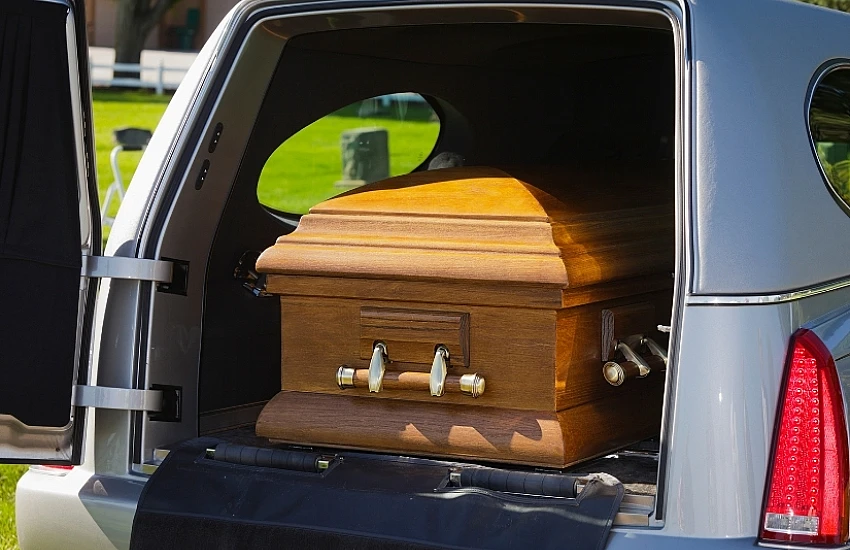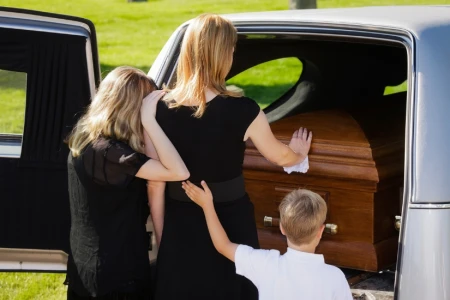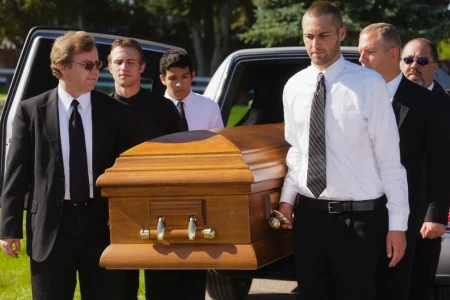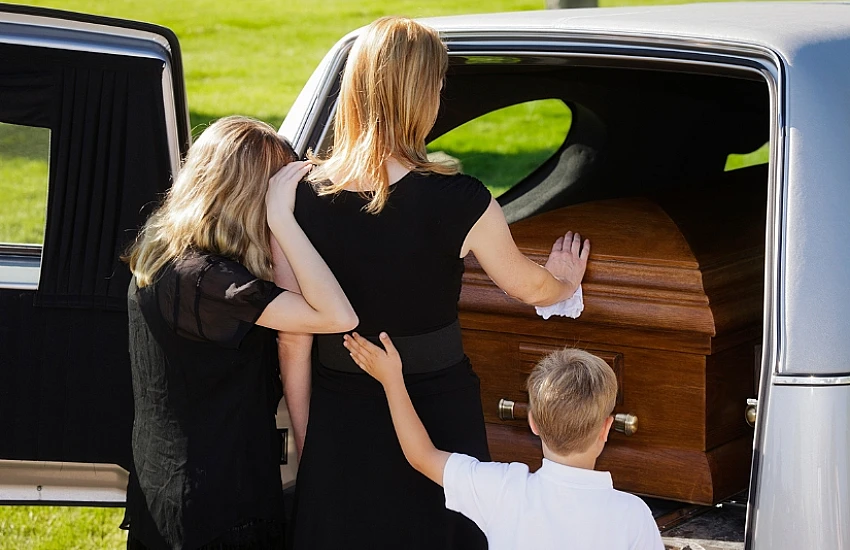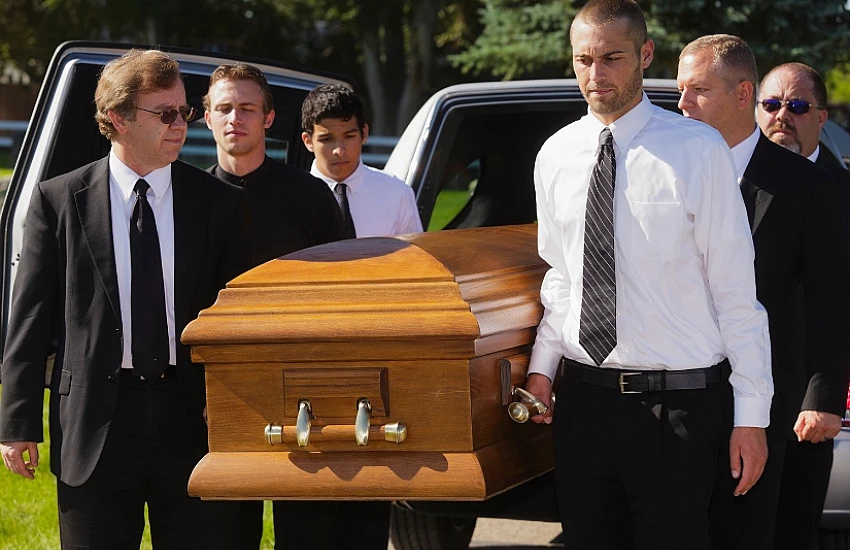Table of Contents
- What Is Dead Body Transport and When Is It Required?
- Key Legal and Sanitary Requirements for Dead Body Transport
- Essential Equipment for Professional Dead Body Transport
- Guidelines for Funeral Companies Organizing Body Transport
- International Funeral Transport – What You Need to Know
- FAQ: Frequently Asked Questions About Dead Body Transport
Transporting deceased individuals is a crucial part of funeral home operations, requiring not only specialized equipment but also knowledge of legal regulations and procedures. Properly organizing the transport of the deceased provides peace of mind and security to families, especially in challenging situations such as repatriation from abroad. In this article, we discuss essential guidelines for funeral transport companies – from legal requirements and necessary equipment to logistics and ethical considerations.
What Is Dead Body Transport and When Is It Required?
Definition and Scope of Funeral Transport
Dead body transport refers to the transfer of a deceased individual from the place of death to the burial or cremation site. This service includes both local and international transport and requires proper equipment and logistical planning to ensure dignity and respect.

Types of Dead Body Transport – Local, National, and International
Funeral transport is generally divided into three categories:
Local transport – Moving a body within a short distance, such as from the place of death to a funeral home.
National transport – Transferring a body over longer distances within a country.
International transport – Transporting a deceased person across borders, which requires compliance with additional legal requirements.
Common Situations Requiring Funeral Transport
Dead body transport is necessary in cases such as:
Moving the body to a burial site in another city or country – For example, transporting a deceased person back to their hometown.
Repatriation from abroad – When death occurs in a foreign country, it is necessary to arrange for the body to be transported to the location of the funeral ceremony.
The Importance of Professional Transport for Bereaved Families
Properly managed funeral transport is crucial for families, allowing them to focus on grieving without additional stress. With professional assistance, they can be assured that all legal and technical formalities will be handled properly, and their loved one will be transported with dignity.

Key Legal and Sanitary Requirements for Dead Body Transport
Legal Regulations in Poland – Sanitary and Administrative Procedures
In Poland, dead body transport is regulated by public health and sanitary laws. Every transfer requires the appropriate permits and must meet specific requirements related to disinfection and containment.
International Transport Regulations
Transporting deceased individuals across European Union (EU) and non-EU borders is governed by both EU laws and the regulations of the respective countries. It is necessary to prepare documentation and obtain official permission from relevant authorities.
Required Documentation for Body Transport
Each transport requires the following documents:
Death certificate
Medical statement confirming the cause of death
Permit for body transportation
Sanitary and Epidemiological Standards
To meet hygiene and safety standards, the body must be properly secured. This includes vehicle disinfection and the use of approved body transport bags.

Essential Equipment for Professional Dead Body Transport
Basic Equipment for Body Transport
Professional funeral transport requires specialized equipment, such as mortuary stretchers, body bags, and vehicles designed for corpse transportation.
Vehicles for Dead Body Transport
Funeral transport vehicles must be properly marked and equipped with refrigeration systems to ensure sanitary conditions.
Body Bags for Transport
Transport bags come in various sizes and are made from durable materials to ensure hygiene and body security.
Securing the Body During Transport
For long-distance or international transfers, bodies should be placed in refrigerated caskets to maintain sanitary and epidemiological standards.
Guidelines for Funeral Companies Organizing Body Transport
Planning and Logistics of Funeral Transport
Efficient route planning and scheduling are key to minimizing transport time and providing the best service to families.
Safe Handling and Transport of the Deceased
Ensuring proper conditions during transport, including maintaining a stable temperature and disinfecting the vehicle, is the responsibility of every professional funeral home.
International Funeral Transport – What You Need to Know
Requirements for Repatriation of the Deceased
Repatriating a body from abroad is a complex process that requires coordination with embassies and consulates.
Costs Associated with Funeral Transport
Domestic and International Transport Costs
The cost of transport depends on factors such as distance, type of transport, and special requirements, such as refrigerated caskets.
Why Professional Funeral Transport Is Essential?
Providing high-quality transport services enhances a funeral company’s reputation and helps build trust with clients, which is invaluable in difficult times.

FAQ: Frequently Asked Questions About Dead Body Transport
1. What is dead body transport, and when is it required?
Dead body transport refers to the transfer of a deceased individual from the place of death to a funeral home, cemetery, or, in the case of international transport, to their home country. It is required when a person passes away far from their intended burial site, especially over long distances or abroad.
2. What are the different types of funeral transport?
Funeral transport includes local transport (short distances), national transport (within the country), and international transport (across borders). Each type requires different preparations and legal compliance.
3. What documents are needed for funeral transport?
For domestic transport, a death certificate and medical statement are required. International transport requires additional documents, such as official transport permits, certified translations, and embassy or consulate coordination.
4. What laws regulate dead body transport in Poland?
Funeral transport in Poland is regulated by health and sanitation laws, specifying body containment, vehicle disinfection, and requirements for funeral service providers.
5. What sanitary requirements must funeral transport vehicles meet?
Vehicles must have ventilation and refrigeration systems to maintain a low temperature. They must also be regularly disinfected and equipped with appropriate compartments for caskets or stretchers.
6. Can a deceased individual be transported by air or sea?
Yes, for long distances, air or sea transport is an option. However, additional formalities, such as airline approvals or arrangements with maritime transport companies, are necessary.
7. How is international funeral transport organized?
International transport involves notifying the consulate, obtaining a transport permit, preparing documentation, booking transport, and delivering the body to the burial location. This often requires embassy assistance and collaboration with funeral homes abroad.
8. How much does dead body transport cost?
Domestic transport costs depend on distance and transport method, while international transport is more expensive due to additional fees for documents, translations, and special sanitary requirements.
9. What equipment is necessary for funeral transport?
Essential equipment includes designated transport vehicles, stretchers, body bags, and disinfection tools. For international transport, refrigerated caskets and sanitary protection measures are required.
10. Why is professionalism in funeral transport important?
Professionally managed transport ensures dignity for the deceased and support for grieving families. Adhering to ethical and technical standards builds client trust and strengthens a funeral home's reputation.

